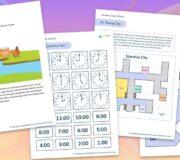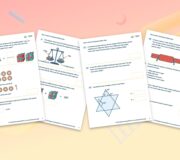Heart Month Maths Activities: Topical Maths [1]
February is Heart Month so bring on the Heart Month Maths activities.
As a month where the British Heart Foundation’s annual campaign to incease awareness of heart disease, it’s a time to celebrate the heart and ‘encourage everyone to make small changes towards a healthier lifestyle’. It is also the most romantic month of the year, with Cupid and his cohort emphasising the importance of love. Matters of the heart are no small matter, and Heart Month is no exception.
Nothing links Maths back to the real world quite like the real world – so capitalise on special celebrations throughout the world to excite and enthuse young learners. Soon, you’re approaching Maths in a way that feels much more relevant to pupils.
We believe that topical Maths is your superweapon so all the way through February and March we’re going to be sharing Maths activities you can link calendar activites and topical events to make Maths in the classroom more fun. Look out for posts on World Book Day Maths (honestly!) the Maths of Shrove Tuesday and Lent, and many more.
KS2 Topical Maths Problems for Spring Term
Fun maths investigations linked to calendar dates, designed to develop reasoning and problem solving in your pupils
And if you can’t wait for all these topical maths activities to give context and purpose to your lessons, we’ve got a free resource of Maths investigations and problems that wraps them all up together: download your free Topical Maths Problems resource here.
It’s a simple trick, and topical Maths can be your superweapon. You’re not teaching averages, you’re investigating – on average – how often a woman’s heart beats in a minute. Or how much blood the heart pumps in a week. You’re not teaching decimals, you’re investigating how much sweets costs and how many you can eat (to a decimal place). Teaching symmetry becomes an investigation into how many lines of symmetry there are in a love heart. Soon, you’re approaching Maths in a way that feels much less insular to pupils.
Heart Month Activity 1: Love Hearts
Who doesn’t love love hearts? Have some fun with these:
- A mini pack of Love Hearts costs 12p. If there are 7 sweets in a pack, what is the cost of 1 sweet? Give your answer to one decimal place.
- You can buy a box of 100 mini packs of Love Hearts for £8.55. How much cheaper is this than buying 100 individual packs?
- Giant Love Hearts cost 35p per pack. If they are on offer at 4 for £1, how much money would you save if you bought one pack for each person in your class?
- You have 88 Love Hearts and decide to share them with a friend. For every 5 Love Hearts you keep, you give 3 to your friend. How many Love Hearts do you give away in total?
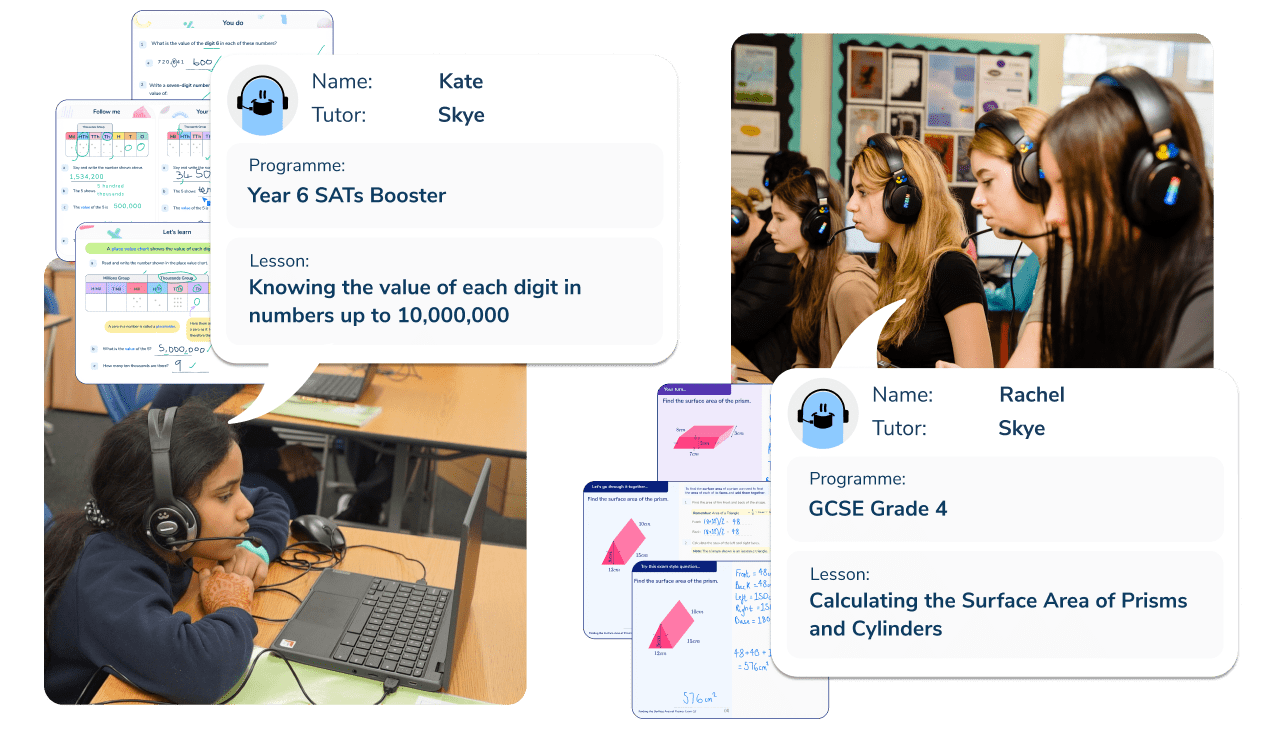
Meet Skye, the voice-based AI tutor making maths success possible for every student.
Built by teachers and maths experts, Skye uses the same pedagogy, curriculum and lesson structure as our traditional tutoring.
But, with more flexibility and a lower cost, schools can scale online maths tutoring to support every student who needs it.
Watch Skye in actionHeart Month Activity 2: How your heart adds up
There is lots of maths involved when learning about the heart. Did you know, doctors will ask a patient to lie down if they want to slow their heart rate, but when a person has a fever their heart rate will increase without them doing any physical activity.
Here are some facts about the heart – read these then answer the questions below
• An adult heart beats 100,000 times a day.
• The heartrate of a newborn baby is 70-160 beats per minute.
• A woman’s average heartbeat is faster than a man’s by 8 beats per minute.
• A child’s heart is the same size as their clenched fst.
• In an average lifetime, the human heart will beat more than 2.5 billion times.
• The heart pumps 380 litres of blood through your body every single hour.
• A kitchen tap would need to be turned on fully for 45 years to equal the
amount of blood pumped by the heart in an average lifetime.
• When the body is at rest, it takes only 8 seconds for the blood to go from
the heart to the brain and back.
• Every day your heart creates enough energy to drive a truck for 20 miles.
Questions
1. A woman’s average heart rate is 78 beats per minute. What is a man’s average heart rate?
2. How much blood does your heart pump through your body in one week?
3. What is the average weight of an adult heart?
4. If you are 10 years old, how far could you have driven using the energy created by your heart?
5. Estimate how long it would take for your blood to go from your heart to your toes and back again.
6. Which child in your class do you think has the biggest/smallest heart? Plan an investigation to find out if you are correct.
Looking for more Hearth Month Maths ideas?
- Fill up a mason jar with candy hearts, ask pupils to estimate based on the area of the heart how many are inside the jar? You can even offer the sweets as a reward for the closest answer.
- Count the frequency of uses of words linking to the colour red, or flowers, or hearts in love poetry. This can be linked to literacy across the curriculum.
- Take each other’s heart rate, before and after break time, or any outdoor exertions, and track it as it increases and decreases over time, using graphs, and tables to record data as appropriate.forms
Nothing links Maths back to the real world quite like the real world – so capitalise on special celebrations throughout the world to excite and enthuse young learners.
Check out 20+ more fun topical Maths investigations KS2 in our blog: 5 Ways to Use Topical Maths to Improve Problem Solving and Reasoning.
DO YOU HAVE STUDENTS WHO NEED MORE SUPPORT IN MATHS?
Skye – our AI maths tutor built by teachers – gives students personalised one-to-one lessons that address learning gaps and build confidence.
Since 2013 we’ve taught over 2 million hours of maths lessons to more than 170,000 students to help them become fluent, able mathematicians.
Explore our AI maths tutoring or find out about primary school tuition for your school.
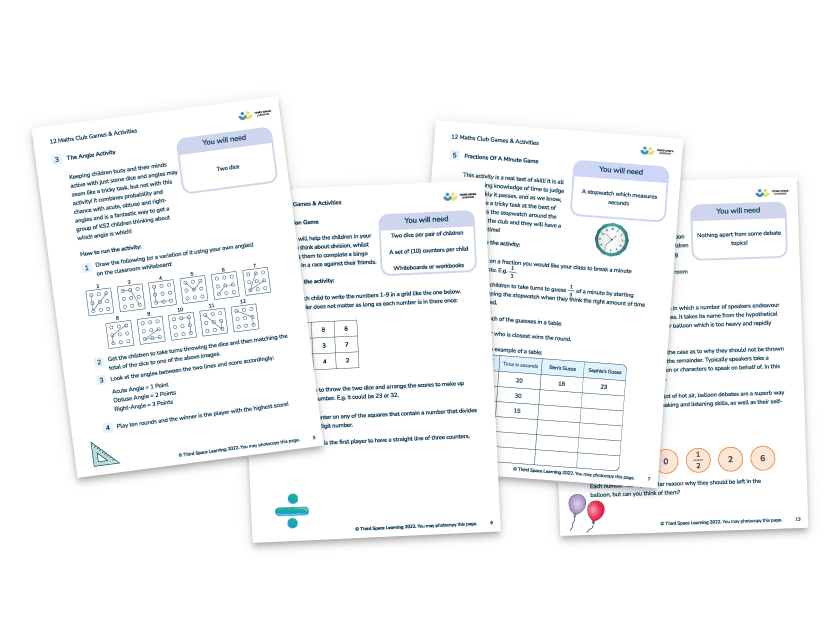

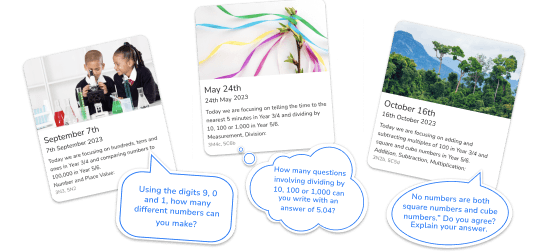
![Heart Month Maths Activities: Topical Maths [1]](https://thirdspacelearning.com/wp-content/uploads/2018/07/Spring-maths-problems-2025-RL-image.png)


